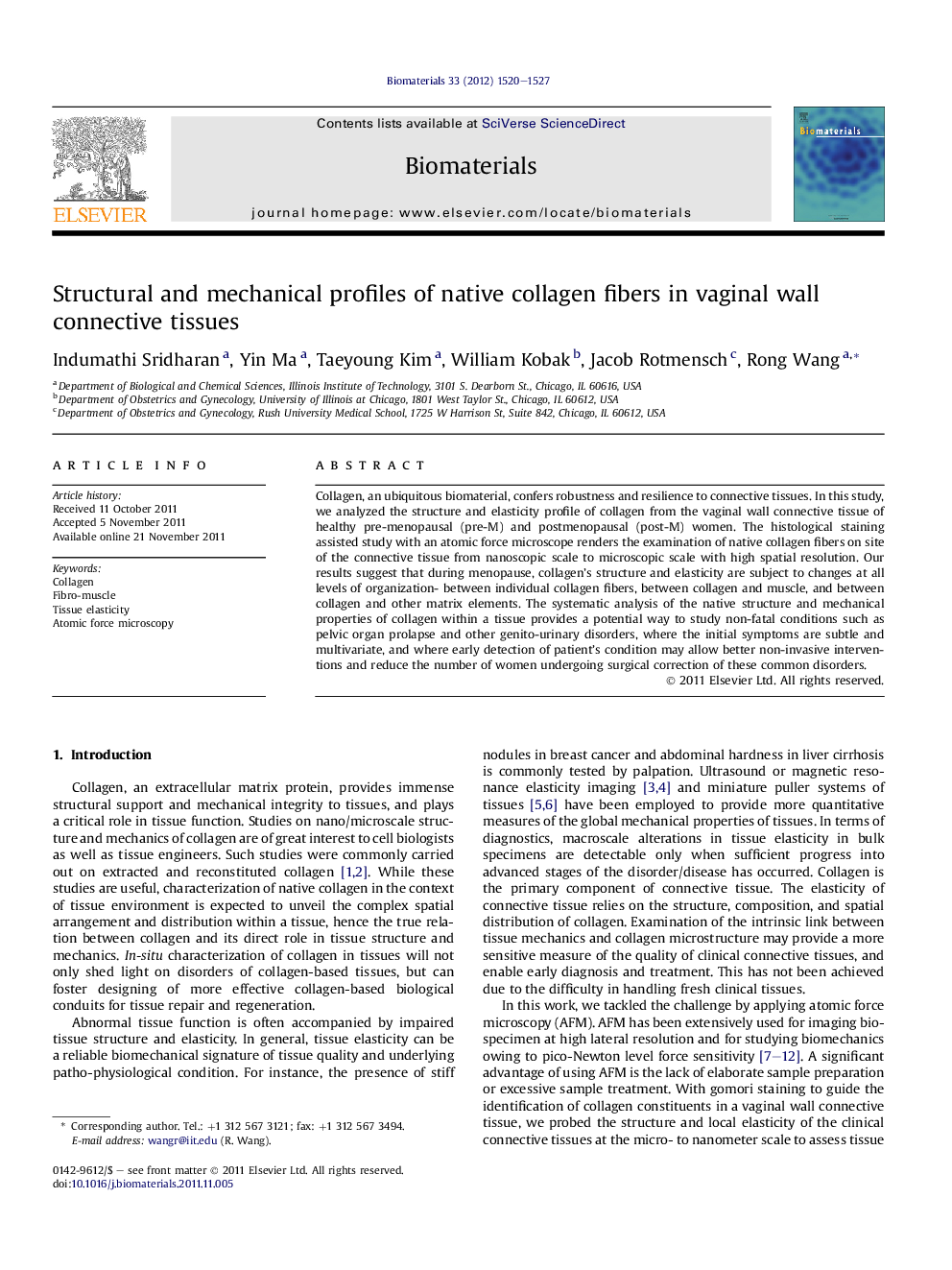| Article ID | Journal | Published Year | Pages | File Type |
|---|---|---|---|---|
| 10229840 | Biomaterials | 2012 | 8 Pages |
Abstract
Collagen, an ubiquitous biomaterial, confers robustness and resilience to connective tissues. In this study, we analyzed the structure and elasticity profile of collagen from the vaginal wall connective tissue of healthy pre-menopausal (pre-M) and postmenopausal (post-M) women. The histological staining assisted study with an atomic force microscope renders the examination of native collagen fibers on site of the connective tissue from nanoscopic scale to microscopic scale with high spatial resolution. Our results suggest that during menopause, collagen's structure and elasticity are subject to changes at all levels of organization- between individual collagen fibers, between collagen and muscle, and between collagen and other matrix elements. The systematic analysis of the native structure and mechanical properties of collagen within a tissue provides a potential way to study non-fatal conditions such as pelvic organ prolapse and other genito-urinary disorders, where the initial symptoms are subtle and multivariate, and where early detection of patient's condition may allow better non-invasive interventions and reduce the number of women undergoing surgical correction of these common disorders.
Related Topics
Physical Sciences and Engineering
Chemical Engineering
Bioengineering
Authors
Indumathi Sridharan, Yin Ma, Taeyoung Kim, William Kobak, Jacob Rotmensch, Rong Wang,
